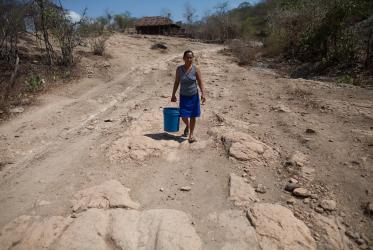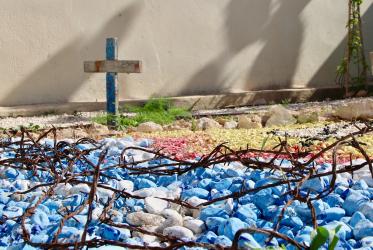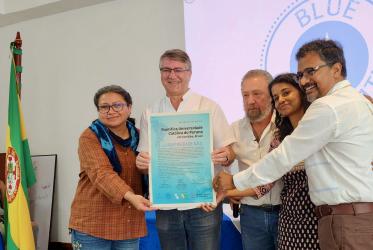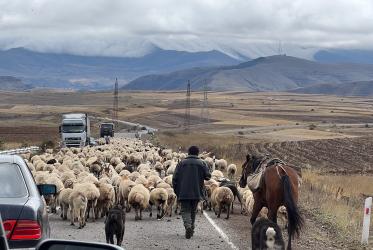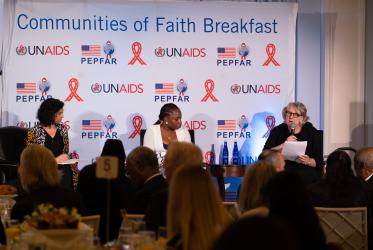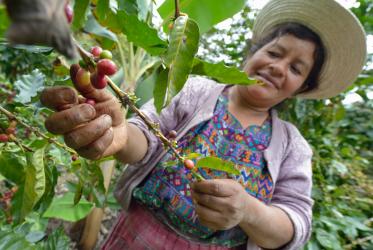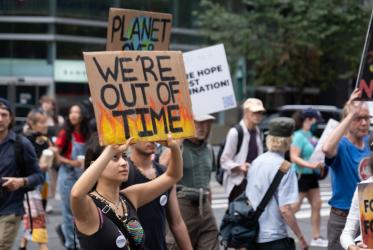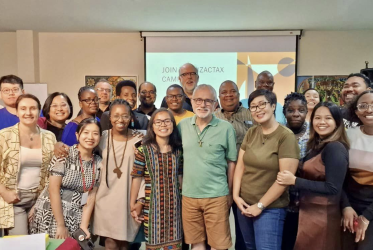Displaying 101 - 120 of 1801
ACT Alliance general secretary: “equity is not negotiable”
26 September 2023
WCC delegation witnesses Azerbaijani forces shelling of Armenian enclave
25 September 2023
WCC appointed as permanent accompanier in Colombian peace talks
21 September 2023
NIFEA group calls for reimagined global financial alternatives
21 September 2023
WCC among “movers and doers” at UN Climate Ambition Summit
20 September 2023
Churches march in New York City to declare no faith in fossil fuels
18 September 2023
"A world free from nuclear weapons is possible"
11 September 2023
GEM School explores how to make new economic world order a reality
08 September 2023
